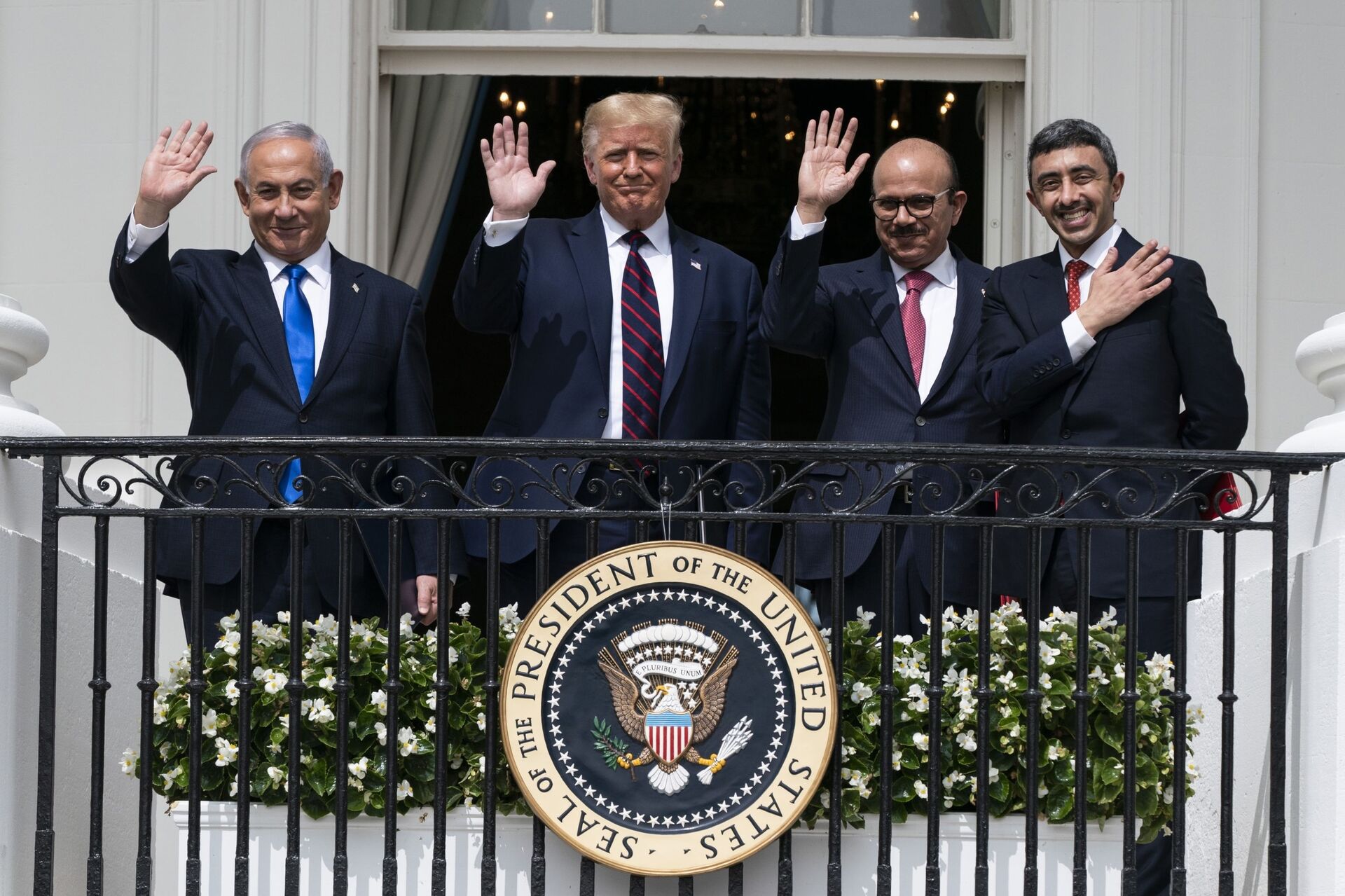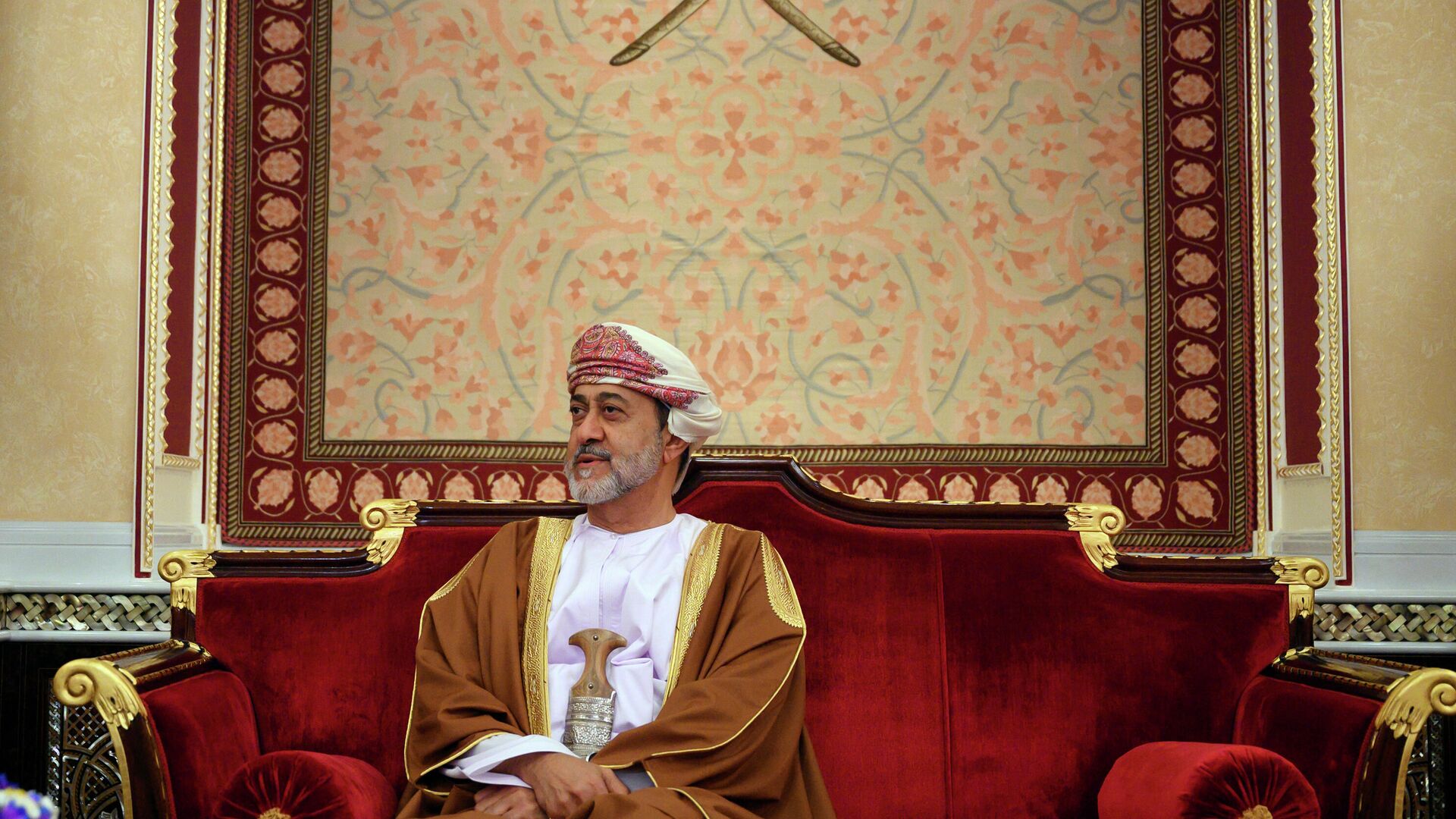Eyeing Oman, Israel’s Foreign Ministry Hopes for More Normalization Deals in Coming Year
22:52 GMT 07.10.2021 (Updated: 11:35 GMT 10.12.2022)
Subscribe
Israel’s Foreign Ministry is looking far and wide for more Muslim nations willing to develop ties in the wake of 2020’s Abraham Accords, a senior ministry official said, and the al-Busaidi monarchy in Muscat is a top choice.
“We’re speaking basically to all countries in the region, in the Middle East and North Africa,” Eliav Benjamin, who heads the Middle East and Peace Process Division at the Israeli Foreign Ministry, told reporters on Wednesday.
“They each have to decide when will be the right time for them and how to go about it. We’re speaking to all of them, Oman as well … we have ongoing cooperation,” he added.
Between September and December of last year, Israel established diplomatic relations with four new Arab states - Bahrain, the United Arab Emirates, Sudan and Morocco - thanks to a US-led negotiation process. Hailed as the Abraham Accords, the deal temporarily halted a planned annexation of large parts of the West Bank’s Jordan River valley by Israel.
Oman, a former British client state, has long sought to be a neutral mediator in a region divided by many different loyalties. Up until his death in January 2020, the late Sultan Qaboos sought to bring Houthi and Saudi diplomats together for peace talks.
More recently, the sultanate, now led by Qaboos’ cousin, Haitham bin Tariq, hailed the Abraham Accords peace deals, saying he hoped it would “be a practical tributary toward achieving peace based on ending the Israeli occupation of Palestinian lands and establishing an independent Palestine with its capital in East Jerusalem.”
Informal talks between Israel and Oman aren’t unheard of, either. Three Israeli prime ministers have secretly visited Oman - Yitzhak Rabin in 1994, Shimon Peres in 1996 and Benjamin Netanyahu in 2018 - with the 1996 visit even leading to the opening of trade offices in both nations. However, those relations were quickly severed in 2000 after the Second Intifada broke out. Still, according to the Times of Israel, “the government of Oman quietly encouraged Israeli diplomats to stick around, as long as the ongoing engagement between the two countries stayed secret.”
In June, Omani Foreign Minister Sayyid Badr bin Hamad al-Busaidi told Israeli Foreign Minister Yair Lapid during a rare phone call that it was the country’s policy was not to make peace with Israel before “the establishment of an independent Palestinian state with East Jerusalem as its capital.”
A few days later, al-Busaidi told Ash-Sharq al-Awsat that “we will not be the third Gulf state to normalise, as I mentioned, but we support the legitimate rights of the Palestinian people and we respect the sovereign decisions of states, just as we expect others to respect our sovereign decisions.”

In this Tuesday, Sept. 15, 2020 file photo, Israeli Prime Minister Benjamin Netanyahu, left, U.S. President Donald Trump, Bahrain Foreign Minister Khalid bin Ahmed Al Khalifa and United Arab Emirates Foreign Minister Abdullah bin Zayed al-Nahyan pose for a photo on the Blue Room Balcony after signing the Abraham Accords during a ceremony on the South Lawn of the White House in Washington.
© AP Photo / Alex Brandon
While that might seem to close the book on the subject, it’s important to note that Morocco made similar declarations several months before suddenly agreeing to a peace deal. As Sputnik has reported, the catalyst was American recognition of Morocco’s claim to rule Western Sahara, a non-self-governing territory to its south that the United Nations has pledged to hold an independence referendum in and which the native Saharawi people call a Moroccan colony.
For the UAE and Bahrain, it seems that what greased the wheels was the promise of new US weapons sales, including the lucrative F-35 stealth fighter; in Sudan, the new civilian government was rewarded for its deal by being removed from the US State Department’s list of state sponsors of terrorism.
Normalization of relations with Israel goes against the so-called “Three No’s” of the 1967 Khartoum Resolution. When Arab leaders met in the Sudanese capital in the aftermath of Israel’s astounding victory in the Six-Day War in which it seized Gaza, East Jerusalem, the West Bank, the Golan Heights, and the Sinai Peninsula from surrounding Arab nations, they agreed on three principles to govern their joint orientation towards Israel: no peace, no recognition, and no negotiations.
Several other countries are also options for Israel to establish or restore relations. For example, Muslim states across the Sahel region, including Chad and Mauritania, have established and then broken relations with Israel; while N’Djamena re-established relations in 2019, Nouakchott so far has not. Saudi Arabia, a close US ally that has long had underground connections to Jerusalem, has also reportedly considered abandoning its position on a Palestinian state and making a deal with Israel.
Israeli daily Yedioth Ahronoth also reported in December 2020, in the wake of Morocco’s about-face, that Jerusalem was also talking to Indonesia, Bangladesh, Pakistan and the Maldives. However, it also claimed that Oman would be next, citing sources in Jerusalem.
However, for now the administration of Israeli Prime Minister Naftali Bennett, a strong proponent of annexing the Palestinian-majority West Bank, is unwilling to consider such a cost.
“The Israeli government won’t deliberate on the establishment of a Palestinian state under the present government of Bennett or Lapid when he comes into office under the rotational agreement,” Bennett’s interior minister, Ayelet Shaked, told UAE-based outlet The National on Tuesday.
“There is a consensus among the parties not to get involved in the issue, which could cause an internal rift,” she said. Israel’s shaky coalition government includes parties from across the political spectrum, including the first-ever Arab party in an Israeli government.
“We believe in economic peace as a means of improving Palestinians lives and to create cooperative industrial zones. But not a state with an army, absolutely not,” she said, referring to the infrastructure projects proposed by the Trump administration in the so-called Deal of the Century that preceded the Abraham Accords, was widely panned in the Arab World and wholeheartedly rejected by the Palestinians.



